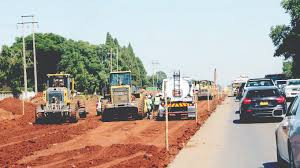
Mo Ibrahim, founder and chair of the Mo Ibrahim Foundation, shared his reflections on the 27th session of the Conference of the Parties of the United Nations Climate Change summit (COP 27) held Egypt last month:
We must not delude ourselves into thinking that COP27 was a success for Africa. The summit did not sufficiently address the continent’s specific vulnerability to the impact of climate change, their absence of responsibility for the current crisis, nor their unique access to energy challenge.
Despite the work carried out by myself, my foundation, and other African organisations to ensure fair representation, the conference notably failed to give due attention to Africa’s green and mineral assets, despite the continent holding the keys to a global low-carbon future.
As to the loss and damage fund that many would like us to celebrate as COP27’s key victory, it was reluctantly set up on the very last hours of proceedings, with no decision on structure, funding or process. It is a fund in name only.
There were, however, several positive outcomes. Africa and several committed partners made substantial headway in making the best of Africa’s potential and opportunities, for the continent, for its people and for a global green future.
The launch of the African Carbon Market Initiative, the Opec (Organisation of Petroleum Exporting Countries) for rainforests, and the EU-Namibia/Egypt strategic partnership on green hydrogen are all important pragmatic steps, that point to a way ahead.
So, let us move forward from there and continue to work towards a climate agenda for the many, not for the few.
Key takeaways include:
- COP27: Taking stock of progress
- Climate change: The least of many Zimbabweans’ worries
- Zim ranks lowly on good governance
- Parliament ratifies Opec Fund loan to Zimbabwe of US$15 million
Keep Reading
Progress towards 1,5oC
The failure to agree a deal on greater cuts to greenhouse gas (GHG) emissions from the highest polluters leaves us a long way from 1,5oC and Africa is one of the regions that will suffer the most from this.
Some countries tried to renege on agreed Glasgow target of 1,5oC limit. While they failed, a resolution to cause emissions to peak by 2025 was taken out of the final agreement.
Africa’s vulnerability
Almost 200 countries agreed to set up a fund to cover ‘loss & damage’, with negotiators agreeing to establish the new structure by 2023. However, with the contributors and recipients of said fund, as well as the amount to commit yet to be decided, it could be some time before any funding is effectively received.
US$230 million has been committed to global adaptation at COP27, with several countries contributing to the adaptation fund for the first time. This is a positive step, but amounts to less than 10% of Africa’s needs alone.
Though a placeholder had appeared in the draft document, the final document included no recognition of Africa’s specific situation and needs.
Africa’s access to energy
References to the hundreds of millions of Africans without access to electricity and clean cooking did not make it into the cover decision.
The cover document emphasises the need for a reduction in emissions based on “just energy transitions” through an increase in “low-emission and renewable energy”. However, while the wording could give some breathing space for Africa to use gas as a transitional fuel, many who fought hardest for this outcome face no energy access problems and escaped further work on mitigating their emissions.
The “Africa Just and Affordable Energy Transition Initiative” was introduced to provide technical and policy support, which is a key t point, but the initiative was not accompanied by energy financing.
While achieving universal energy access in Africa by 2030 would require $25 billion per year, little progress has been achieved, as no new commitments on energy financing were outlined in the cover document.
Africa’s potential
Africa’s potential was recognised in some ways, with the EU deals with Egypt and Namibia on green hydrogen. However, other than a side event there was nothing in the cover document on the centrality of Africa’s minerals to a green transition.
The Africa Carbon Markets Initiative (ACMI) was launched, which could help raise finance in voluntary carbon markets.
However, technical details of global carbon credits that could transfer wealth from high polluters to those preserving valuable natural assets and reducing emissions have been kicked to 2023, with little to no progress this year. There was much optimism after broad principles on governing carbon markets were agreed at COP26, so the inability to work out details for implementation at COP27 can be seen as a failure.
The Mo Ibrahim Foundation was established in 2006 with a focus on the critical importance of political leadership and public governance in Africa. By providing tools to assess and support progress in leadership and governance, the foundation aims to promote meaningful change on the continent. The foundation, which is a non-grant making organisation, focuses on defining, assessing and enhancing governance and leadership in Africa through various key initiatives: Ibrahim Index of African Governance; Ibrahim Prize for Achievement in African Leadership; Ibrahim Governance Weekend; Ibrahim Fellowships and Scholarships; and Now Generation Network.






